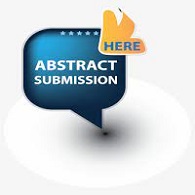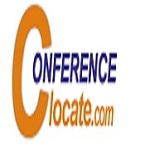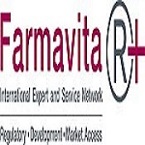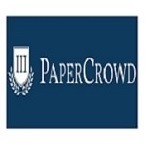About Conference
Welcome to the 33rd Global Nursing and Health Care Conference, one of the most anticipated events in the healthcare industry! This prestigious conference aims to bring together healthcare professionals, nurses, researchers, academicians, and industry experts from all around the world to exchange knowledge, share experiences, and discuss the latest advancements in the field of nursing and healthcare.
Our conference offers an exceptional platform for networking and collaboration, providing opportunities to establish new partnerships and strengthen existing ones. With a diverse range of sessions, workshops, and keynote speeches by renowned experts, this event promises to be a transformative experience for all attendees.
Why to Attend?
Insightful Presentations: Gain insights from thought-provoking presentations by distinguished speakers, sharing their expertise and research findings on crucial nursing and healthcare topics.
Networking Opportunities: Connect with peers and industry experts, fostering professional relationships that can lead to collaborative projects and career advancement.
Stay Updated: Stay abreast of the latest developments, innovations, and trends in nursing and healthcare, helping you enhance your practice and patient care.
Professional Growth: Engage in interactive discussions, workshops, and skill-building sessions to augment your knowledge and skills, elevating your professional growth.
International Exposure: Interact with delegates from diverse cultural backgrounds, contributing to a global perspective on healthcare challenges and solutions.
Explore Amsterdam: Experience the rich culture and beauty of Amsterdam, a vibrant city known for its history, art, and picturesque landscapes.
Target Audience
The 33rd Global Nursing and Health Care Conference targets a diverse audience of professionals, researchers, educators, students, and industry experts in the nursing and healthcare sectors. The conference aims to bring together individuals from various backgrounds and roles, fostering a multidisciplinary and collaborative environment. The targeted audience includes:
-
Nurses
-
Healthcare Practitioners
-
Researchers and Academicians
-
Healthcare Administrators and Managers
-
Public Health Professionals
-
Mental Health Professionals
-
Maternal and Child Health Specialists
-
Geriatric Care Specialists
-
Healthcare Researchers
-
Nursing and Healthcare Students
-
Healthcare Industry Representatives
-
Global Health Professionals
Sessions/Tracks
Track 1. Nursing Education and Practice:
The evolving landscape of healthcare demands a dynamic approach to nursing education and practice. Nursing education today focuses on evidence-based teaching, technology integration, and interdisciplinary learning to equip future nurses with critical thinking, clinical judgment, and leadership skills. Practice environments emphasize holistic care, patient advocacy, and adaptive strategies to address complex health issues and diverse patient needs. Continuous professional development, collaborative teamwork, and adherence to ethical standards are vital in advancing nursing roles in various settings. By blending theoretical knowledge with hands-on experience, nursing professionals are better prepared to contribute to quality patient outcomes, adapt to healthcare advancements, and lead in their communities. This synergy enhances the overall effectiveness of the healthcare system.
Track 2. Healthcare Policy and Management:
Explore the pivotal realm of Healthcare Policy and Management, where strategic decisions shape the future of health systems globally. This domain focuses on the development, implementation, and evaluation of policies that influence healthcare delivery, public health, and health outcomes. Effective management and policy-making ensure the efficient allocation of resources, equity in healthcare access, and the advancement of quality care. Professionals in this field address complex challenges, including cost containment, regulatory compliance, and healthcare reform. By integrating evidence-based practices and innovative management strategies, healthcare leaders can drive improvements in patient care, system sustainability, and overall public health, ultimately enhancing the well-being of communities worldwide.
Track 3. Patient Safety and Quality Care:
Ensuring patient safety and delivering quality care are fundamental to healthcare excellence. Patient safety focuses on minimizing risks, errors, and harm during healthcare delivery through evidence-based practices. Quality care encompasses providing effective, efficient, and patient-centered services. At the core of these initiatives are stringent protocols, ongoing training, and a culture of transparency and continuous improvement. Healthcare professionals are dedicated to safeguarding patients' well-being by adhering to established guidelines and leveraging technology for real-time monitoring and error reduction. Collaborative efforts among healthcare teams, patients, and policymakers are essential for advancing patient safety and maintaining high standards of care, fostering trust, and improving health outcomes.
Track 4. Advanced Healthcare Technologies:
Advanced healthcare technologies are revolutionizing patient care and treatment outcomes. Innovations such as artificial intelligence, telemedicine, and personalized medicine are enabling more accurate diagnoses, efficient treatments, and improved patient experiences. AI algorithms analyze vast amounts of medical data to detect patterns and predict disease progression, while telemedicine facilitates remote consultations, making healthcare more accessible. Personalized medicine tailors treatments to individual genetic profiles, enhancing effectiveness and minimizing side effects. Wearable devices and health apps empower patients to monitor their health in real-time. These technologies not only streamline clinical workflows but also promote proactive health management, heralding a new era in healthcare.
Track 5. Mental Health and Psychiatric Nursing:
Mental health and psychiatric nursing is a vital field that focuses on caring for individuals experiencing mental health challenges. Psychiatric nurses play a crucial role in assessing, diagnosing, and treating a wide range of mental health conditions, from depression and anxiety to schizophrenia and bipolar disorder. They work collaboratively with patients, families, and interdisciplinary teams to develop comprehensive treatment plans tailored to each patient's unique needs. Psychiatric nurses provide medication management, psychotherapy, and holistic interventions to promote mental wellness and recovery. They also advocate for their patients, educate the public, and contribute to the advancement of mental health research and policy. The compassionate, evidence-based care of psychiatric nurses is essential for supporting those on their journey to better mental health.
Track 6. Public Health and Community Nursing:
Public health and community nursing play a vital role in promoting the overall well-being of populations. These nurses work within local communities, collaborating with various stakeholders to identify and address pressing health concerns. They focus on preventative care, health education, and the coordination of services to improve access and outcomes. Community nurses may conduct home visits, organize screenings and immunization clinics, and advocate for underserved groups. By taking a holistic, community-based approach, they work to reduce health disparities and empower individuals to manage their own health. Public health and community nursing are essential components of a comprehensive healthcare system that prioritizes population-level wellness.
Track 7. Maternal and Child Health:
Maternal and child health is a vital aspect of public health that focuses on the wellbeing of mothers, infants, and young children. It encompasses a range of services and interventions aimed at ensuring the physical, mental, and social health of this crucial population. This includes prenatal care, childbirth assistance, postpartum support, nutrition programs, immunizations, and early childhood development initiatives. By prioritizing the health of mothers and children, societies can lay the foundation for a healthier and more prosperous future. Investing in maternal and child health not only improves individual outcomes but also strengthens the overall resilience and sustainability of communities.
Track 8. Geriatric Nursing and Aging Care:
Geriatric nursing focuses on providing comprehensive, holistic care for older adults. Nurses in this field are trained to address the unique physical, mental, and social needs of the aging population. They play a crucial role in promoting healthy aging, managing chronic conditions, and supporting patients and their families through end-of-life transitions. Key responsibilities include assessing and monitoring elderly patients, developing individualized care plans, administering medications, coordinating with other healthcare providers, and educating patients and caregivers on topics like falls prevention, nutrition, and cognitive health. Geriatric nurses work in a variety of settings, including hospitals, long-term care facilities, assisted living communities, and home health agencies. Their expertise is vital in ensuring the dignity, comfort, and wellbeing of older adults.
Track 9. Innovations in Nursing Research:
Nursing research is rapidly evolving, driven by technological advancements and a growing emphasis on evidence-based practice. Innovative approaches are transforming how nurses conduct studies and analyze data. The integration of artificial intelligence and machine learning allows for more efficient data processing and the identification of novel insights. Wearable devices and remote monitoring technologies enable the collection of real-time patient data, providing a more holistic understanding of health outcomes. Online and virtual research methodologies facilitate broader participant engagement, enhancing the diversity and representativeness of study populations.
Track 10. Global Health and Emerging Diseases:
Global health is a crucial field that focuses on improving the health and well-being of people worldwide. Emerging diseases, such as COVID-19, Ebola, and Zika, pose significant threats to global health. These diseases can spread rapidly across borders, leading to pandemics that have far-reaching consequences. Factors like climate change, urbanization, and increased human-animal interaction contribute to the emergence and re-emergence of infectious diseases. Addressing global health challenges requires a collaborative, multidisciplinary approach involving governments, international organizations, healthcare systems, and researchers. Strengthening disease surveillance, improving access to healthcare, and investing in research and development of new vaccines and treatments are essential to mitigate the impact of emerging diseases and promote global health equity.
Track 11. Ethical and Legal Issues in Healthcare:
Ethical and legal issues are critical considerations in the healthcare industry. Providers must navigate complex questions around patient autonomy, informed consent, end-of-life decisions, and the fair allocation of limited resources. Challenges arise with emerging technologies like genetic testing, stem cell research, and artificial organs. Healthcare workers also face dilemmas regarding patient privacy, confidentiality, and the reporting of abuse or negligence. Broader systemic issues include equitable access to care, the role of profit motives, and the balance between individual rights and public health priorities. Careful deliberation, clear policies, and a patient-centric approach are essential to upholding ethical principles and legal requirements in this high-stakes field.
Market Analysis
1. Market Size and Growth: The global nursing and healthcare conference market is significant, with numerous conferences held annually across the world. The market has seen steady growth over the years, driven by the increasing demand for healthcare services, advancements in medical technology, and the need for continuous professional development in the nursing field.
2. Industry Trends: In recent years, there has been a growing emphasis on evidence-based practice and the integration of technology into healthcare. Conferences often focus on topics related to digital health, telemedicine, artificial intelligence, and data analytics in nursing and healthcare settings. Additionally, there is a growing awareness of the importance of mental health and community-based care, which may also be addressed in the conference.
3. Impact of COVID-19: The COVID-19 pandemic has had a profound impact on the healthcare industry, including nursing. Conferences have adapted to the pandemic by shifting to virtual or hybrid formats to ensure safety and accessibility for participants. The pandemic has also highlighted the significance of topics such as infection control, emergency response, and the importance of healthcare professionals' well-being, which may be relevant themes in the conference.
4. Geographical Reach: As a "Global" conference, it is expected that the event will attract participants from various countries worldwide. This diversity in attendees allows for the exchange of knowledge, best practices, and experiences from different healthcare systems and cultural perspectives.
5. Economic Impact: The conference is likely to have a positive economic impact on the host city, Amsterdam, Netherlands. Attendees from various countries will contribute to the local economy through accommodation, dining, transportation, and other expenses during their stay. Join us in Amsterdam for this exceptional event, where ideas converge, collaborations form, and knowledge transforms. Let's collectively strive for a healthier and more sustainable future in nursing and healthcare!









